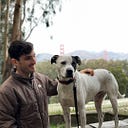Optimize for Learning
“In your 20s, optimize for learning, not earning.”- Tim Ferris
Optimize for learning is a curious person’s mantra and a guiding principle for young companies. In organizations and teams that must frequently make decisions to balancing short vs long term goals (i.e. growth, core product) the value of a learning culture compounds over time.
Startups carrying heavy expectations from inception. Investors, employees, journalists, and anyone else who bothers to pay attention wants to see success (or the facade of success, vanity metrics) as soon as possible. The pressure is well documented to have negative effects on founders and teams. Optimizing around what you can learn will improve long term success and minimize the suck of short term failings. It hurts to fail, but failure is itself an opportunity to critically evaluate your work, the ecosystem, and discover the nuance that will make your next project more likely to succeed.
It sucks to realize a feature you’ve been working on is a failure, but there are some things you can do to improve the negative experience. It starts by including your hypothesis when you set up a project’s success metrics. Next, figure out what it means if you’re wrong.
The few minutes theorizing about what happens if you’re wrong may be the most valuable time anyone spends on the project, especially if you don’t meet your goals. You may realize the need for additional qualitative measurement around the feature (like an exit survey) or the tenuous connection between company goals and the code complete feature. Later, when it’s time to present the data in a postmortem, you’ll have a narrative for a positive outcome despite a failed feature.
Lessons learned are like compound interest, they develop into success over time.
The organization learns to focus on meaningful features more quickly by harnessing the power of conscious failure. A team can quickly overcome the need for guessing when they look for guidance in failed projects rather than sweep them under the rug.
Experience is inevitable, but we must be mindful in order to learn.

